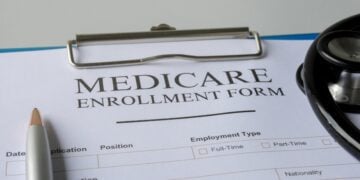Being healthy is more than exercising and eating well. It includes preventative care. You may be anxious, but that shouldn’t stop you from getting tests and screenings.
Check with your doctor and insurance company to make sure you’re covered for certain tests recommended by the U.S. Preventative Services Task Force (USPSTF) and the CDC so that you can make a plan that works for you.
Health tests and screenings by age
Health tests and screenings by age:
All ages
- Blood pressure/hypertension screenings should be conducted once a year.
- Weight is measured during yearly exams. Let your doctor know if you have drastic fluctuations.
- Skin cancer screenings are visual exams that your doctor should do yearly.
- Cholesterol blood screening is important because only 20% of cholesterol comes from diet and 80% is produced in the liver. Doctors recommend testing every four years or sooner with risk factors.
- Diabetes and prediabetes blood screenings are recommended for those who are obese or overweight for early detection.
- Hearing and vision screenings are important to lessen chances of falling . Hearing loss can cause cognitive decline without intervention.
- Periodontal exams and regular teeth cleanings are important for healthy gums and teeth.
- Hepatitis C blood testing helps to detect this virus of the liver. The CDC recommends all adults be tested at least once.
20 – 40 years old
In addition to the recommended tests and screenings for all ages, this age group should also talk to their doctors about these exams:
- Cervical cancer testing and a pelvic exam are recommended every three years via pap smear of the cervix beginning at age 21.
- Testicular self-exams are done to develop a baseline and to find abnormalities. Testicular cancer is rare and highly treatable.
40 – 60 years old
In addition to the recommendations for all ages, this age group should talk to their doctors about these screenings and tests:
- Colorectal cancer screening and colonoscopy are now recommended to begin at age 45, every five years, unless there’s prior history or risk factors. While many people dread the liquid preparation for a colonoscopy, recent advances have made the process more palatable including the use of pills instead of liquid. Talk with your doctor to find out which regimen is best for you.
- Cervical cancer testing and pelvic exams should continue every three years or as your doctor advises.
- Osteoporosis screening and bone density testing are recommended for post-menopausal women of any age and women 65 and older. The tests are quick and painless as you lie on a table and are scanned by an x-ray like machine that passes over.
- Mammograms should be conducted yearly, combined with breast exam for women beginning at age 40. There are differing opinions about the suggested age and frequency for mammograms. This is the more conservative recommendation. It’s important to check with your doctor to determine what’s best for you.
- Lung cancer screening is recommended by the CDC and USPSTF for those who have had a 20 pack or more per year smoking history, smoke now, or have within the past 15 years and are between 50 and 80 years old. This x-ray like screening is quick and painless.
- Testicular cancer screening should continue yearly or as your doctor advises.
- Prostate blood screening should happen annually for men 50 and over unless other risk factors are present.
- Abdominal aortic aneurysm ultrasounds are recommended for men 65-75 who have previously smoked at least 100 cigarettes in their lifetimes or who have a family history of aortic aneurysm. This simple, pain-free test is conducted using an ultrasound wand to detect sound waves.
60 – 70 years old
In addition to the recommendations above for continuation for life of certain tests, this age group may want to discuss the following screenings and tests with their doctor:
- Colorectal cancer screening and colonoscopy should continue every five years until age 75.
- Fall risk and balance assessments should begin at age 65. Knowing your risk for falling or balance issues can help you to minimize the risk.
- Osteoporosis screening and bone density testing should be continued
- Lung cancer screening should continue until age 80.
- Mammogram and self-exam should continue until age 75.
- Abdominal aortic aneurysm ultrasounds should continue until age 75.
70 – 80 years old
In addition to the recommendations above for continuation for life of certain tests, this age group may want to discuss the following screenings and tests with their doctor:
- Colorectal cancer screening and colonoscopy may continue however, doctors typically do not recommend performing colonoscopies over the age of 75. Talk to your doctor about your specific situation.
- Fall risk and balance assessments should begin at age 65. Knowing your risk for falling or balance issues can help you find ways to minimize the risk.
- Lung cancer screening should continue until age 80.
- Mammograms and self-exams should continue until age 75.
- Abdominal aortic aneurysm ultrasounds should continue until age 75.
80+
You can continue with the less invasive tests and screenings for all ages, however, patients in their 80’s are often advised to forgo many tests unless there are significant concerns. Doctors find that many tests come with greater risk than benefit as we age but as always these are loose guidelines, always check with your doctor about your specific situation for guidance.
As Benjamin Franklin wisely said, “An ounce of prevention is worth a pound of cure,” in other words, preventative care can help you to be healthy, happy and live a productive life for years to come!
Can I Get Life Insurance Without a Medical Exam?
Yes, you can get life insurance without a medical exam. Learn how to qualify for Colonial Penn’s Guaranteed Acceptance Whole Life insurance with no medical exam.
Colonial Penn is here for you!
Colonial Penn has specialized in making life insurance simple and accessible by offering it directly to consumers since 1957. Click here to learn more.





